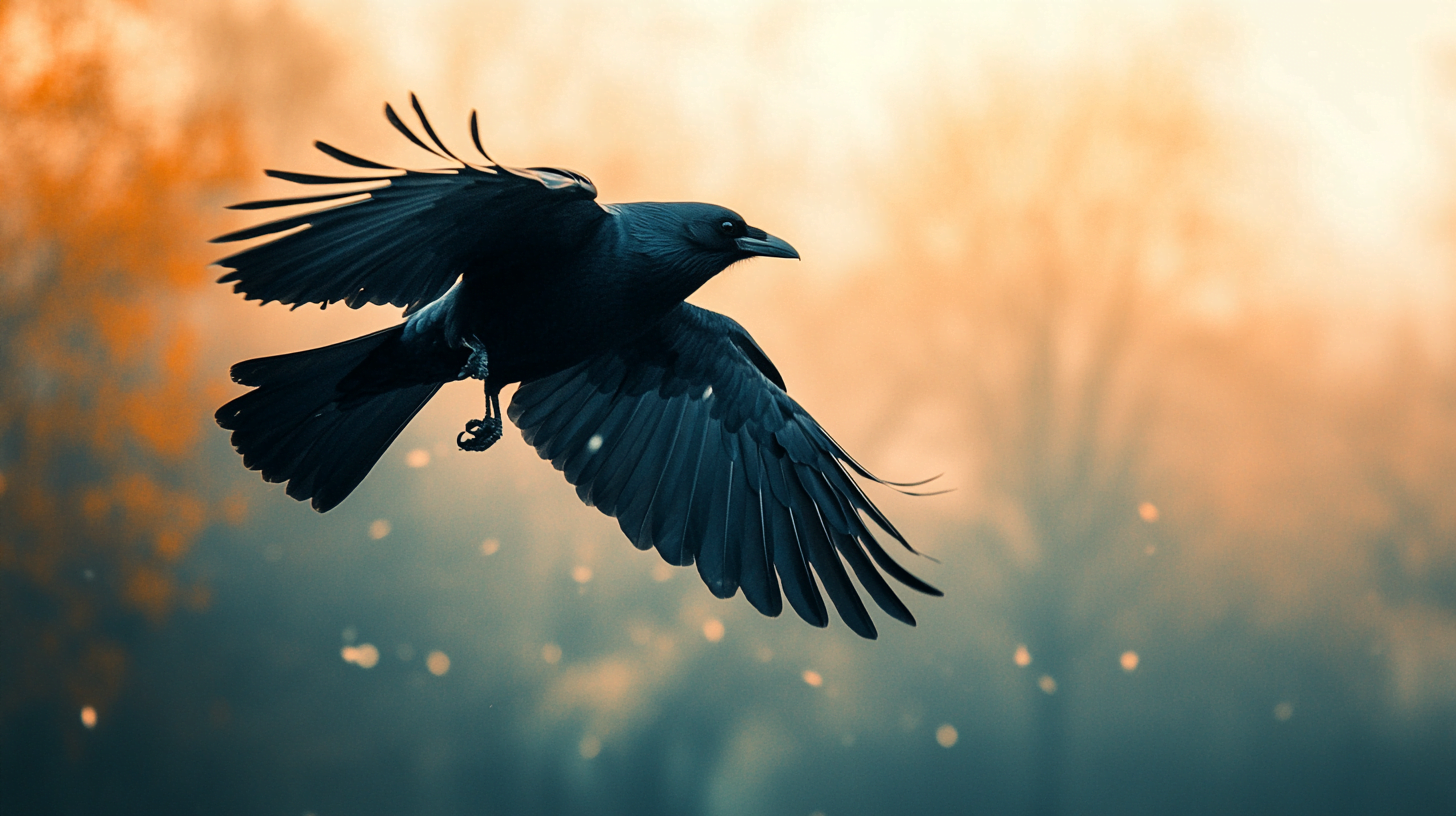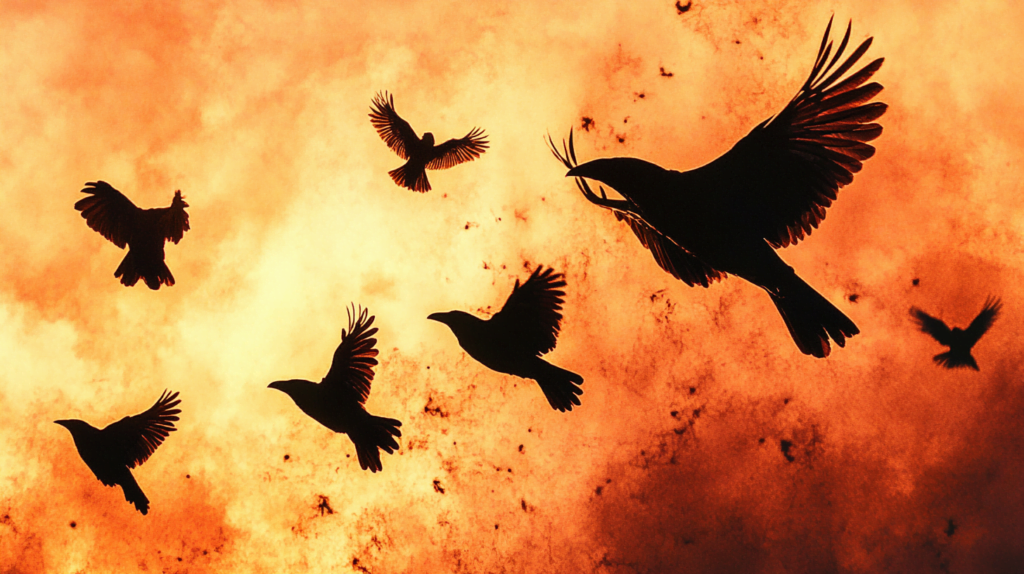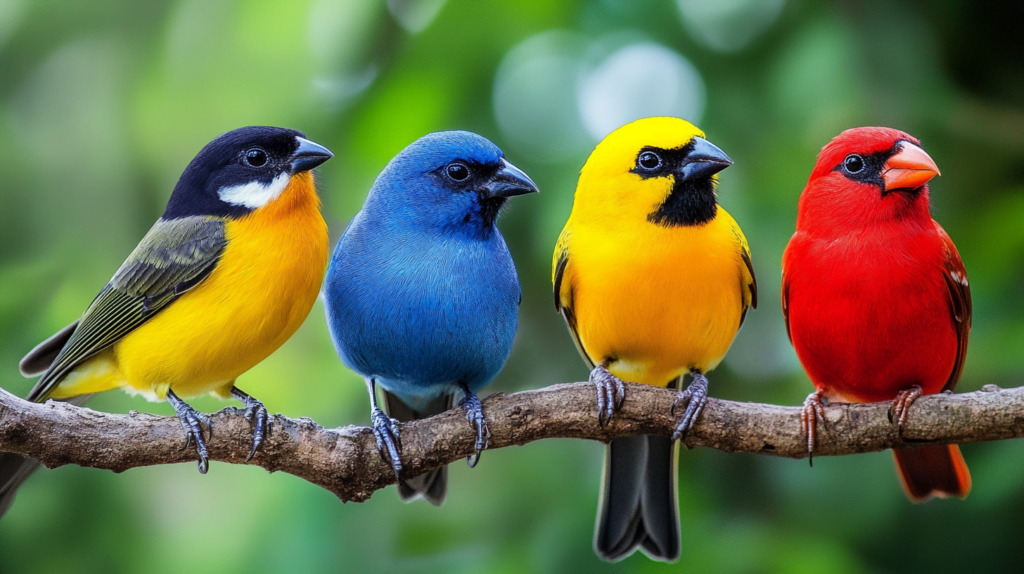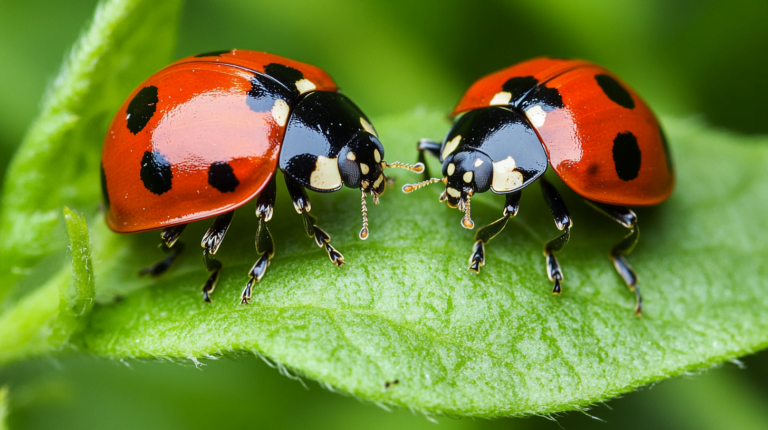Book Appointment Now
Feathered Omens: Which Birds Bring Bad Luck and Why?
Discover which birds bring bad luck across cultures and why. Explore the science behind avian superstitions, debunk myths, and learn to appreciate these misunderstood creatures. From crows to peacocks, uncover the fascinating world of bird omens and their ecological importance.

Table of Contents
Have you ever wondered which birds bring bad luck? You’re not alone. For centuries, our feathered friends have fluttered through folklore, carrying both good tidings and dire warnings on their wings. Let’s dive into the world of avian superstitions and uncover the truth behind these age-old beliefs.
Introduction: When Feathers Spell Trouble
Birds have long been seen as messengers between our world and the beyond. Their ability to soar through the skies has inspired awe and fear in equal measure. But why do some birds get a bad rap? It’s a tale as old as time, woven into the fabric of human culture.
The connection between birds and superstitions isn’t just idle chatter. These beliefs have shaped how we interact with our environment for generations. From avoiding certain paths to performing rituals, our ancestors took these omens seriously. And in many parts of the world, people still do.
The Usual Suspects: Common Birds Associated with Bad Luck
Crows: The Classic Bearers of Misfortune
When it comes to birds that bring bad luck, crows often top the list. These intelligent black birds have gotten a bad rap in many cultures. Here’s why:
- In Western folklore: Crows are often associated with death and the supernatural.
- Native American traditions: Some tribes see crows as tricksters, while others view them as wise.
- In literature: Edgar Allan Poe’s “The Raven” cemented the crow’s spooky reputation.
The term “murder of crows” doesn’t help their image. But did you know this collective noun likely comes from folk etymology, not their behavior? Crows are actually highly social and intelligent birds. They can solve problems, use tools, and even recognize human faces!
Owls: Wisdom or Woe?
Owls present a fascinating dichotomy in the world of bird superstitions. In some cultures, they’re revered as symbols of wisdom. In others, their nocturnal habits and eerie calls spell doom. Let’s break it down:
| Culture | Owl Symbolism |
|---|---|
| Ancient Greece | Wisdom and strategy |
| Many Native American tribes | Death and the afterlife |
| Some African cultures | Witchcraft and sorcery |
| Modern Western | Often positive, associated with knowledge |
The shift in Western perception of owls is particularly interesting. Once feared as harbingers of death, they’re now beloved characters in children’s books and popular culture. This change highlights how malleable our superstitions can be.
Magpies: One for Sorrow
“One for sorrow, two for joy” – sound familiar? This old English nursery rhyme about magpies has cemented their reputation as luck-bringers (or takers). The full rhyme goes:
- One for sorrow
- Two for joy
- Three for a girl
- Four for a boy
- Five for silver
- Six for gold
- Seven for a secret never to be told
Interestingly, the number of magpies you see is believed to predict your future. But here’s the kicker: in some parts of the world, magpies are considered lucky! In China, for example, magpies symbolize happiness and good fortune.

Lesser-Known Bearers of Bad Luck
Seagulls: Coastal Calamity
You might not think of seagulls as harbingers of doom, but in some coastal areas, they’re seen as bad news. Here’s why:
- Three seagulls flying together: In some maritime traditions, this is a sign of an impending storm or shipwreck.
- Seagull landing on your head: In the UK, this is sometimes seen as a sign of impending death (though it’s more likely a sign you’re holding food!).
Despite these superstitions, seagulls play crucial roles in coastal ecosystems. They’re excellent indicators of ocean health and help control populations of fish and invertebrates.
Peacocks: Beauty with a Dark Side
Peacocks might be stunning, but their feathers have a surprising reputation. In some cultures, bringing peacock feathers into the house is believed to bring bad luck. Why? Some theories include:
- The eye-like pattern on the feathers is thought to attract the “evil eye”.
- In some Eastern European folklore, peacocks are associated with fallen angels.
However, in many Asian cultures, peacocks are symbols of good fortune and nobility. This just goes to show how much cultural context matters when it comes to bird superstitions!
The Science Behind Bird Superstitions
So why do we associate certain birds with bad luck? It’s not just random chance. There are psychological and evolutionary reasons behind these beliefs:
- Pattern recognition: Our brains are wired to spot patterns. If a black bird appears before something bad happens a few times, we might start to associate the two events.
- Confirmation bias: Once we believe something brings bad luck, we’re more likely to notice and remember instances that confirm our belief.
- Evolutionary advantage: Being cautious of potential omens might have helped our ancestors survive in dangerous environments.
- Cultural transmission: Beliefs about lucky and unlucky birds are passed down through generations, reinforcing their importance.
Understanding these mechanisms doesn’t make the superstitions disappear, but it does help us approach them with a more critical eye.
Cultural Variations: Birds That Bring Bad Luck Around the World
Bird superstitions vary widely across cultures. Here’s a quick tour of some interesting beliefs:
- Japan: Barn owls are called “bird of death” and are considered unlucky.
- India: Seeing an owl in daylight is thought to be a bad omen.
- Mexico: The “lechuza,” a mythical bird-witch, is feared in some regions.
- Scotland: A peacock feather in the house is believed to bring misfortune.
These variations often reflect local ecosystems and cultural histories. Birds that are common in one area might be rare and mysterious in another, leading to different superstitions.
Debunking the Myths: Are These Birds Really Unlucky?
It’s time for a reality check. While these superstitions are fascinating, there’s no scientific evidence that any bird can bring bad luck. In fact, many of these “unlucky” birds play crucial roles in their ecosystems:
- Crows are intelligent problem-solvers that help control insect populations.
- Owls are excellent at controlling rodent populations, benefiting agriculture.
- Magpies help disperse seeds and control insect populations.
- Seagulls are important indicators of ocean health.
Instead of fearing these birds, we should appreciate their ecological importance and the diversity they bring to our world.
What to Do When You Encounter “Unlucky” Birds
If you’re still a bit superstitious, here are some traditional and modern approaches to dealing with “unlucky” bird encounters:
Traditional methods:
- Salute a lone magpie to ward off bad luck
- Cross yourself if you see a crow
- Throw salt over your shoulder if an owl hoots at night
Modern, bird-friendly alternatives:
- Take a moment to appreciate the bird’s beauty and role in nature
- Learn more about the species and its ecological importance
- Support bird conservation efforts in your area
Remember, the best way to change your luck is through your own actions, not by avoiding certain birds!
The Flip Side: Birds That Bring Good Luck
Not all bird superstitions are negative. Many birds are considered lucky across various cultures:
- Robins: Often seen as harbingers of spring and new beginnings
- Storks: Associated with birth and new life in many European cultures
- Cranes: Symbols of longevity and good fortune in East Asian cultures
- Bluebirds: Often considered symbols of happiness and prosperity
These positive associations remind us that our relationship with birds is complex and multifaceted.

Conclusion: Embracing Avian Diversity
As we’ve seen, the world of bird superstitions is rich and varied. While it’s fun to explore these beliefs, it’s important to remember that all birds play vital roles in our ecosystems. Instead of fearing certain species, we should:
- Appreciate the diversity of bird life around us
- Learn about the ecological roles of different bird species
- Support conservation efforts to protect all birds, “lucky” or “unlucky”
By shifting our perspective, we can turn supposed omens of bad luck into opportunities for wonder and learning. After all, isn’t the real magic in the incredible diversity and beauty of the avian world?
FAQs About Birds That Bring Bad Luck
- Why are some birds considered unlucky?
This often stems from cultural traditions, historical events, and the birds’ appearance or behavior. - Is it really bad luck if a bird flies into your house?
While some cultures see this as a bad omen, there’s no scientific evidence to support this belief. - How can I protect myself from bird-related bad luck?
The best protection is knowledge. Learn about birds and appreciate their role in nature. - Are black birds always associated with bad luck?
Not always. In some cultures, black birds are considered wise or protective. - Do bird superstitions vary by region?
Yes, significantly. A bird considered lucky in one culture might be seen as unlucky in another. - Can feeding “unlucky” birds change my fortune?
While it won’t change your luck, it can help local bird populations and increase your appreciation for nature. - Are there any scientific studies on birds and luck?
There are studies on the origins of superstitions, but none have found evidence of birds influencing luck. - How have bird superstitions changed over time?
Many have evolved or faded as our understanding of birds and nature has increased.
Remember, the next time you spot a crow, owl, or magpie, take a moment to appreciate these fascinating creatures. They’re not harbingers of doom, but vital members of our natural world, each with their own unique beauty and importance.



